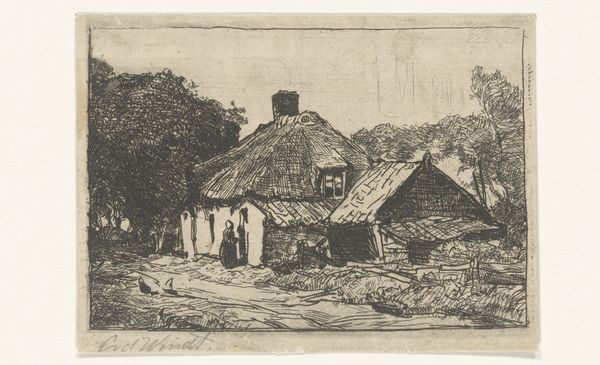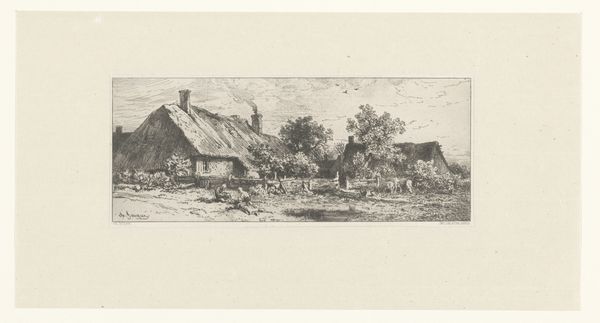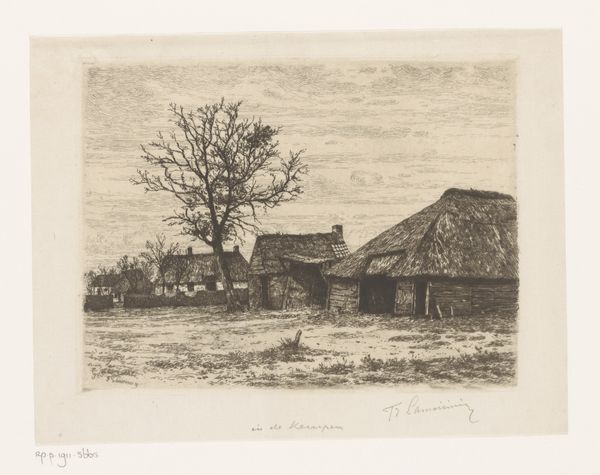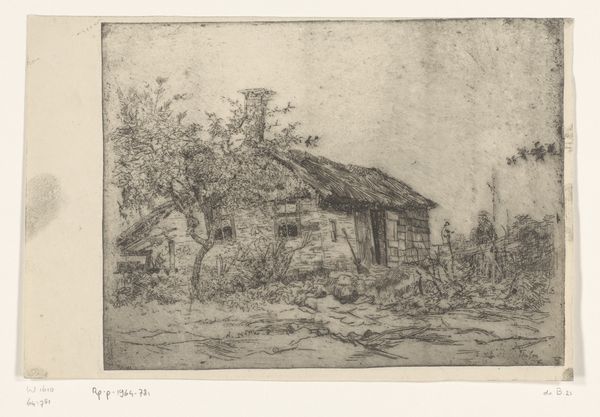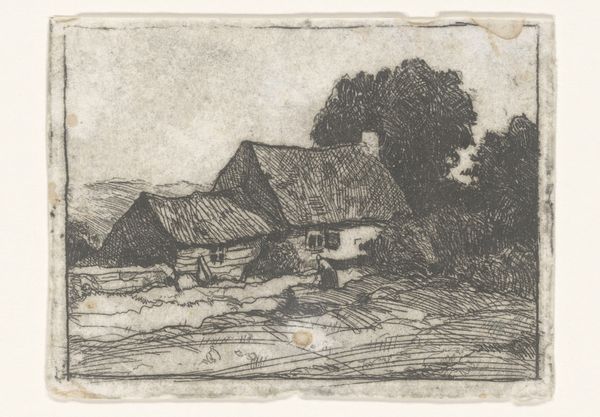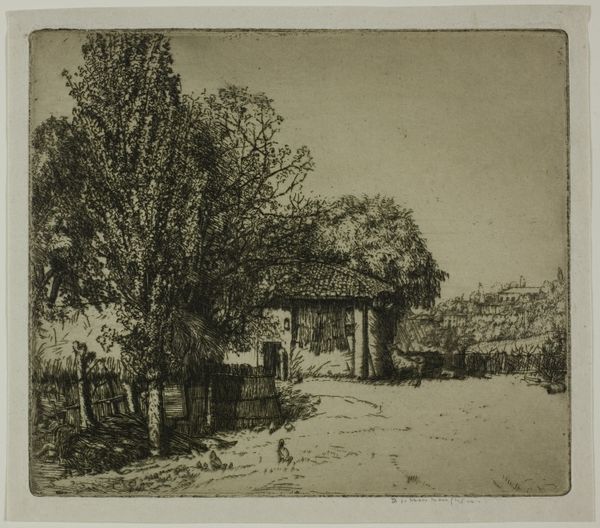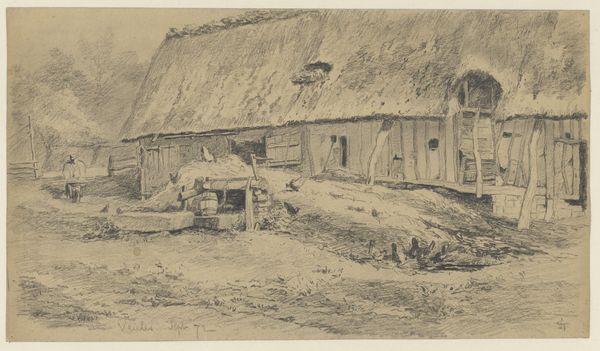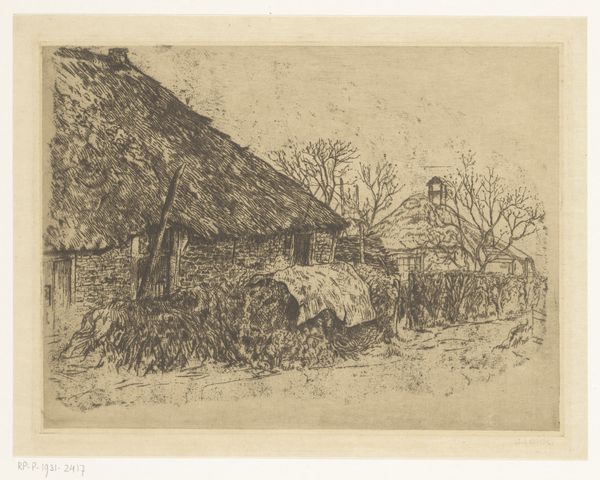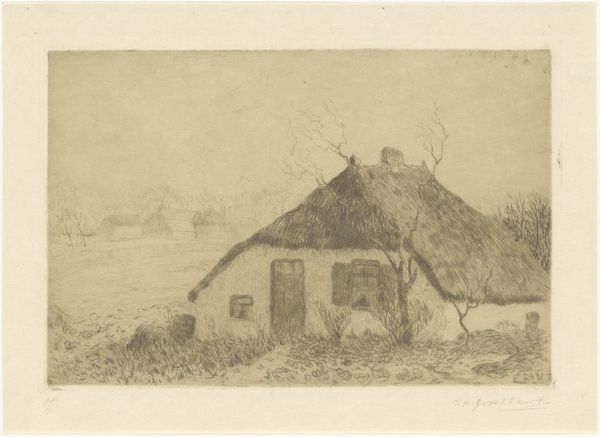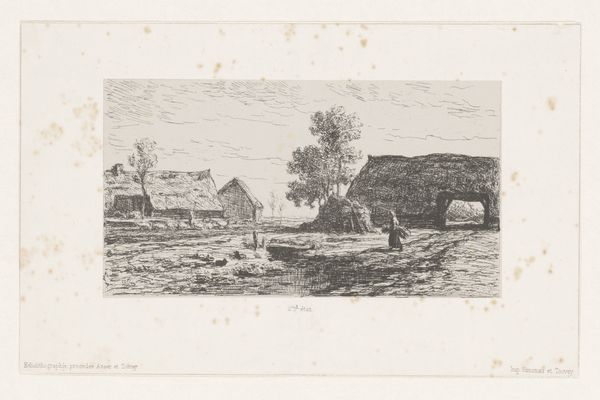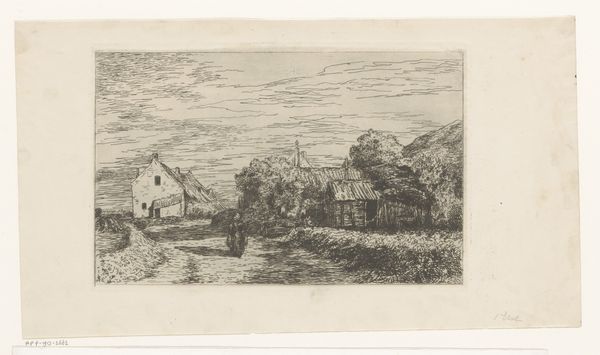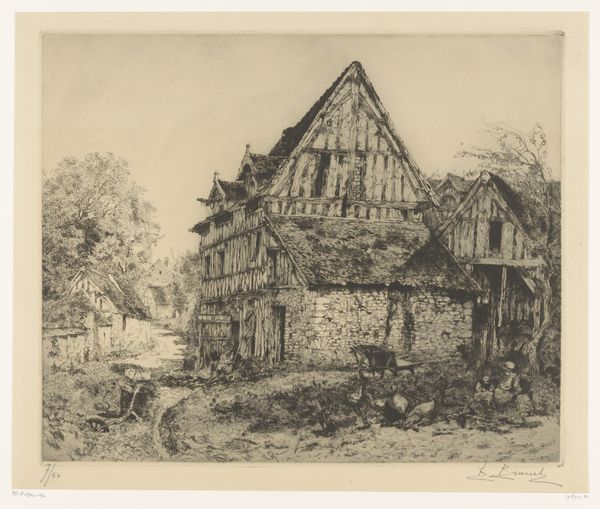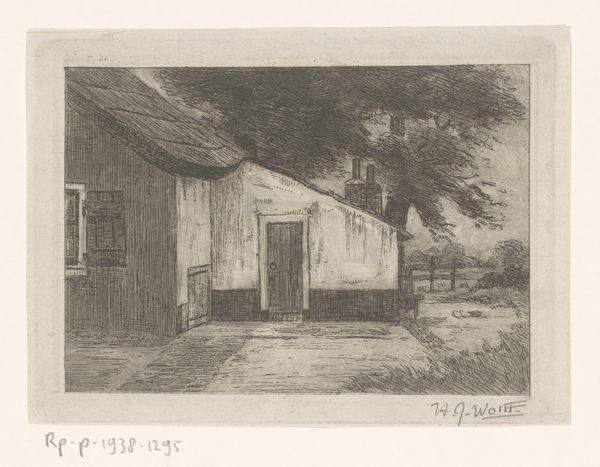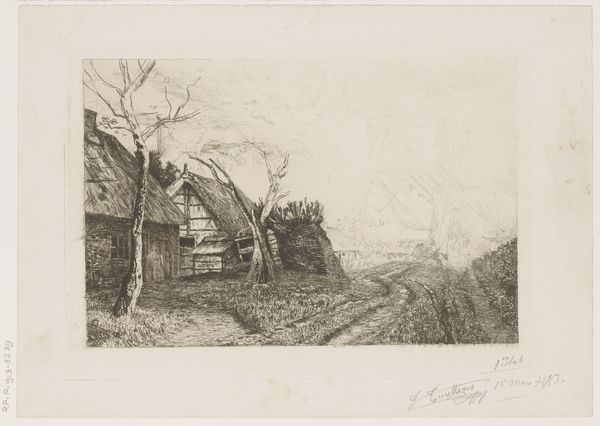
etching
#
etching
#
landscape
#
etching
#
realism
Dimensions: height 136 mm, width 199 mm
Copyright: Rijks Museum: Open Domain
Curator: Standing before us is "Boerderij met schuur," or "Farmhouse with Shed," an etching by Chris van der Windt, created sometime between 1887 and 1952. Editor: It strikes me as rather melancholy, despite depicting a scene of rural labor. The limited tonal range and slightly awkward composition convey a certain isolation. Curator: Van der Windt’s work engages with the means of production in a direct way. Here, we observe not just the farmhouse, but a site of agricultural labor—a shed presumably for tools or storage. Notice the figure working inside, an integral part of the farming process. The texture achieved with the etching technique further highlights the materiality of the artwork itself. Editor: The linear hatching gives volume and shape to these fairly rudimentary structures, while also conveying the ruggedness of the rural scene. I'm intrigued by how the dark density of the trees contrast to the pale light reflecting on the shed's facade. Curator: Precisely, we're drawn to think about labor's harshness and also the landscape, maybe a reflection on the urbanization that transformed rural labor during Van der Windt's life. Editor: Do you find the off-center placement of the sun or moon distracting? It adds a layer of unease and destabilizes the overall pictorial harmony. Curator: Perhaps, yet it could signal resilience. The farm perseveres through material production—despite societal transformations. This challenges idealized notions of art removed from societal production by focusing attention on how everyday realities influence how an artist translates the landscape into something visually evocative. Editor: Ultimately, "Farmhouse with Shed" resonates not just due to the subject’s social-historical significance but how it demonstrates that formal qualities—the composition, line, tone—contribute equally to meaning. Curator: Yes, from my perspective it pushes us to acknowledge the hands that shaped the scene, in both art and life.
Comments
No comments
Be the first to comment and join the conversation on the ultimate creative platform.
